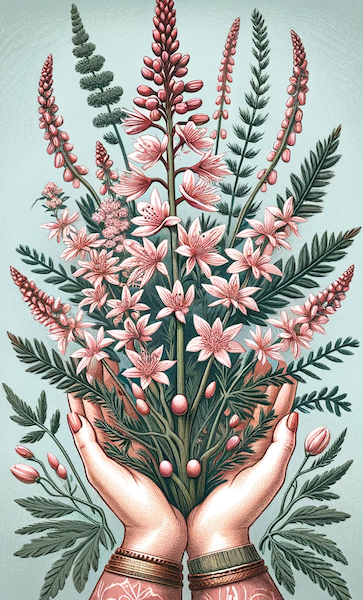Principal Use and Effect
In the realm of Ayurveda, Tulsi, or Holy Basil (Ocimum sanctum), is revered as a sacred herb, esteemed for its profound healing properties. Known as the “Queen of Herbs,” Tulsi's principal use lies in its remarkable ability to enhance respiratory health and immunity. It acts as a powerful adaptogen, effectively reducing stress and balancing the body's systems. With its potent anti-inflammatory and antioxidant qualities, Tulsi helps in combating infections, soothing the throat, and clearing the airways. It also plays a significant role in maintaining heart health and regulating blood sugar levels. Beyond its physical benefits, Tulsi is celebrated for its spiritual significance, believed to bring clarity and calm to the mind, thus supporting a harmonious balance between the physical and spiritual aspects of health.
Effect on the Doshas
In Ayurvedic practice, Tulsi is particularly known for its positive effect on Kapha and Vata, bringing warmth and fluidity to the body's energies and processes. Tulsi seeds decrease Pitta.
Taste (Rasa)
Pungent and Bitter
Potency or Energy (Virya)
Heating (the seeds are cooling)
Main Action (Karma)
Antibacterial, nervine, antispasmodic, diaphoretic, blood purifying
Other Uses
Used in cough, cold, and Kapha-predominant respiratory conditions (e.g., asthma),; Dysuria (urinary burning), Antibacterial, Antitussive, Carminative (Reduces Gas & Bloating), Demulcent, Diuretic, Emetic (Induces Vomiting), Expectorant, Febrifuge, Laxative, Parturient (Eases Childbirth)
Modern Research
Cancer, Cholesterol problems, Conjunctivitis, Diabetes type 2, Gout, Heart disorders, Ulcers, Wounds, Acne Source
Remember, it's important to consult with a healthcare professional or an Ayurvedic practitioner before starting any new treatment to ensure its safety and suitability for your specific needs.







